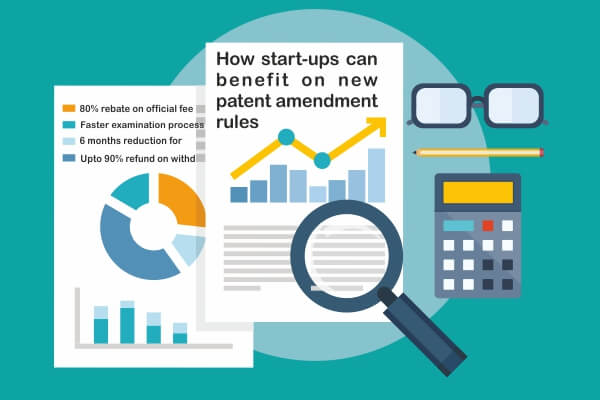 Here is some good news for all those startups interested in filing patent applications but were held back because the process was too tedious.
Here is some good news for all those startups interested in filing patent applications but were held back because the process was too tedious.
The fact that the government is now keen on seeing a rise in Indian intellectual property is not a hidden fact. But, taking that to the next level is the announcement that the Indian government has implemented patent amendment rules, 2016, w.e.f. May 16, 2016. This will make patent registration process much easier and cost effective for startups. The new rules emphasize on fast tracking option for patent applications so that start-ups can realize the value of their IPR at the earliest possible time.
The Indian government has launched Startup India Action Plan to empower Startups to grow through innovation. Implementation of it was initiated by launching a Mobile App to simplify startup registration. Click here to get further details on Startup India action plan.
According to the amended rules by the Government of India, a “startup” is defined as a new company/LLP/a registered Partnership firm; i) That has been founded not more than 5 years ago; ii) That does not have a turnover of more than INR 25 crores i.e., approximately USD 3,850,000 in any financial year, in the last 5 years’ time, and iii) That is working towards innovation, development, deployment or commercialization of new products, processes or services driven by technology or intellectual property.
Given below are the key benefits for startups with respect to the patents amendment rules, 2016:
- Cost-wise, startups are now are on par with individual persons,:
Now the startups have been introduced as a new entity type apart from individual, small entity and large entity, i.e., they are entitled to get fee reduction equivalent to “individual persons” instead of small entity/large entity in amended rules.
- 80% rebate on fees:
As the startups are now being considered as a new entity, this is going to bring down the patent fees and make them eligible for 80% rebate on official fees, as per the startup action plan. The application fees for startups will now be INR 1600/- and for companies INR 8,000/-
- Faster examination process within 105 days:
In the amended rules, the fast tracking of patent applications that has been introduced only for startups makes sure that a request for expedited examination mandates the Controller to issue the First Examination Report (FER) within 105 days, when the expedited examination request is accepted. For the expedited examination fee, the startups will now have to pay only INR 8000.
- 6 months reduction to file response to First Examination Report (FER):
Now, the response to an FER is to be filed within 6 months (extendible by up to 3 months), and the Controller, to dispose the applications within 3 months from the date of receipt of last reply, or within 3 months from the last date to put the application in order for grant, whichever is earlier. This helps in getting the patent application granted in much less time.
- Up to 90% refund for application withdrawals:
For the first time, an applicant will be entitled to a refund of 90% of the patent fees upon withdrawing an application, only before the FER is issued. In other words, patent fees can now be reimbursed when the application is withdrawn after filing the request for examination but before issuance of FER.
- In just 21 days, foreign filing licensing request is issued:
Now the foreign filing license request will be disposed of within 21 days from the date of request where the applicant opts for filing patent application in foreign country without filing the application in India.
Thus, the startups will now be able to register patents in a much easier way and at a lesser cost under the latest patent amendment rules. The Indian government has also assured that the patents will be granted within approximately two and a half years, instead of the existing five to seven years. In addition to the above, the latest patent amendments have also taken care of some other benefits. For more highlights of the patents amendment rules, 2016, please click here. We now wait to see how the startups reaping these benefits.



